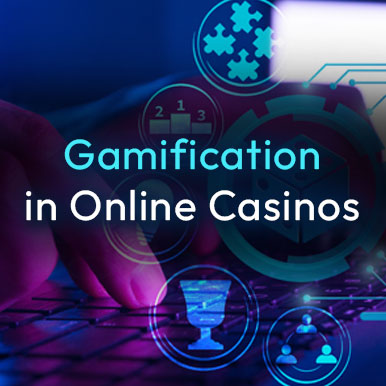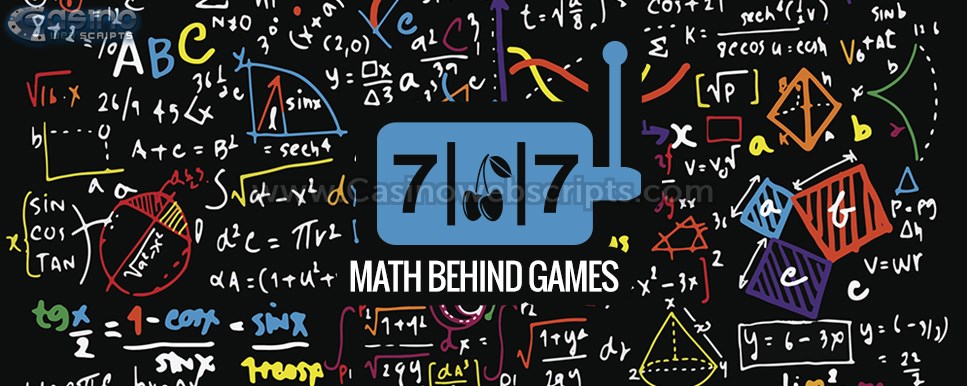Gambling - Odds and probability
The Key to Success
There are countless opportunities to bet or gamble across the world, in a variety of settings. Understanding the odds and probability of the game that you are gambling upon is crucial to any player’s success in both online and land casinos. The key to this concept is having the ability to comprehend what the terms “odds” and “probability” really mean, and how they apply to the world of gambling. The two nouns are often used interchangeably, although they can come to be defined as two very different things.
Probability
When using the term “probability” within the world of gambling, it can be defined as “the number of ways of winning divided by the total number of possible outcomes”. The key to understanding probability is the ability to determine the difference between independent and dependent events, and which one applies to which game in the casino.
Independent events thrive on their own, and are not “dependent” on other events. Therefore, this means that past results have absolutely no effect on future outcomes. This type of event occurs in a variety of gambling games, although the players often do not recognize them. For example, slot machines are completely based on independent events. It is commonly thought that the longer you play on a machine, the better chance you have to win. It is also believed that if a person has lost for a long time, that they have to win soon, or if they have just won on a machine, that the machine will not produce winnings again soon. Although these misconceptions are incredibly widespread, neither one of them are true. In fact, each and every spin of a slot machine is random, and does not depend on the previous spin. Due to this fact, a winning turn of the wheels could come at any time and the amount of time spent at the machine has no relation to this.
On the other side of the spectrum, dependent events also exist in a variety of gambling games. This goes to say that a previous event or choice does, in fact, have a direct effect on future outcomes. An example of one of these games found in a casino would be a popular card game, poker. When playing poker, cards are drawn from a deck of 52 and are typically not returned to the pile once drawn. The probability of drawing a certain type of card goes down every time a card of that type is drawn. For example, there are four Jacks in a deck of cards. The probability of drawing a Jack starts at 4/52 (four jacks per 52 total cards). Once one Jack has been drawn, the probability of drawing another one reduces to 3/51 (there are now only 3 Jacks left in a pile of 51 cards). This goes to say that certain casino game results, such as in poker, depend on the outcomes of previous events.
Odds
In terms of gambling, “odds” can be defined as taking “the event itself against all other events possible, exclusive of the event itself. Therefore, odds are a proportion of the probability of an event occurring versus the probability that the event will not occur. Odds can be expressed as either for or against an event to happen. For example, when playing a game based on the rolling of a dice, the odds can be seen clearly. A dice has 6 sides, and let’s say that we are looking to roll a “3”. The chance of rolling a three is 1 to 5, or 1:5. This is because you are looking for one specific number, and not the other five. This would be labeled as odds in favor, or “for”, an event. On the other hand, odds of not rolling a three are 5 to 1, or 5:1. This is because you are looking to roll any one of the numbers, except for three. This would be labeled as the odds “against” an event.
Probability vs. Odds
Now that the definitions of the two terms have been clearly defined, what is the difference between them? The probability of an event occurring is represented by a percentage, calculated by dividing the chances of the event occurring by the total chances of any event taking place. Probability is not used to guarantee that a player will win, it is simply given to represent the likelihood of a winning event taking place. Using the example of rolling a dice, the probability of rolling one of the six numbers, like a three, is 1 out of 6, or 16.7%. This simply implies that the likelihood of rolling a three, out of the six sides possible, is 16.7%.
Odds on the other hand, are represented by a ratio of chances for an event to happen versus the chances against the same event to take place. When using the same example of rolling a dice, the odds of rolling a number three would be expressed as 1 to 5, or 1:5. This implies that the odds of rolling a three are one to five (there is only one “3” side and five other sides).
Payouts
Once you understand what the terms “probability” and “odds” mean and how they relate to the world to gambling, you can begin to formulate a plan to generate winnings. The odds placed on a gambling machine or games are not necessarily equivalent to the actual chances that the player will win. They actually are used to represent the amount of winnings that the casino will pay out if a bet is won. To generate a profit from gambling, a player must be able to predict the direct relationship between the probability of winning and the payout odds. The odds of actually winning are typically less than the odds of the casino winning. However, if a player understands, calculates and practices the math and probability behind the odds of winning, they will likely have far more success than those who do not.
Be Successful!
Now that the facts are known on the odds and probability in gambling games, players must utilize this information to begin generating a profit. The game must first be determined to be based on independent or dependent events. The player can then determine the probability of a winning event occurring by dividing the number of possible ways to win by the total number of possible outcomes. They can relate that probability directly to the odds of winning provided by the casino and determine the bet that would produce the best possible results.











